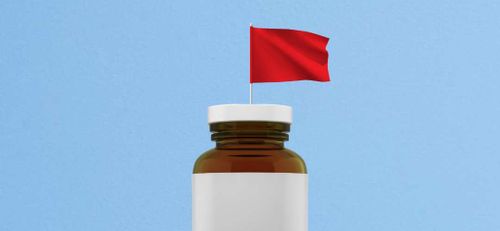The health and wellness market is overflowing with brands promising life-changing results. But how do you separate the genuine from the gimmicks? With clever marketing and vague claims, it’s easy to fall into the trap of buying supplements that are ineffective—or worse, misleading.
Here are six major red flags to watch out for when choosing a nutrition brand, so you can make smarter decisions for your health.
1. Overstated Health Claims
Beware of exaggerated promises that sound too good to be true. Some common claims include:
- “Boosts Immunity Instantly”: Immunity doesn’t work like a switch. Real benefits, such as improved immune support, take time and consistency.
- “Detox Your Body”: Your liver and kidneys already detox your body naturally. No supplement can magically ‘cleanse’ better.
- “Cures Diseases”: Vitamins and supplements can support overall health, but they cannot replace medical treatments or cure specific conditions.
If a brand makes bold claims without providing detailed scientific evidence, that’s a major red flag.
2. Bulking Agents and Fillers
Low-quality nutrition brands often rely on bulking agents and fillers to create the illusion of a complete product. These capsules might look the part, but the truth is:
- Many contain minimal active ingredients (the nutrients you actually need).
- The rest is made up of fillers designed to take up space in the pill or capsule.
Always check the ingredient list. A quality brand will focus on delivering active, high-potency nutrients rather than unnecessary extras.
3. Buzzwords Without Scientific Basis
Certain buzzwords are used to give the impression of credibility—but they’re often meaningless without proper context. Be wary of:
- “Doctor-Recommended”: Who are these doctors? Without transparency or evidence of affiliations, this claim is meaningless.
- “Natural”: A vague term. Many synthetic vitamins are just as effective as natural ones.
- “Clinically Proven”: Often misused when the product hasn’t undergone rigorous testing or the research doesn’t apply to the actual dosage or formulation.
Don’t let jargon replace evidence. A trustworthy brand provides detailed research and context for their claims.
4. High Prices Don’t Mean High Quality
Many brands charge a premium for their products, but don’t assume higher prices equal better quality. Some of the most expensive supplements:
- Use proprietary blends to hide ingredient amounts, making it impossible to determine whether key nutrients are dosed effectively.
- Include trendy ingredients like collagen or biotin in doses too low to have any real benefit.
Be wary of brands that spend more on flashy marketing than delivering genuine value.
5. Gummy Marketing
Gummy supplements are often marketed as a convenient, tasty alternative to traditional pills. However, there’s a hidden cost to this “convenience”:
- Gummy vitamins contain colourings, sugar, or artificial sweeteners, which leave little room for meaningful amounts of nutrients.
- It’s nearly impossible to pack effective doses of vitamins into a gummy format.
What you gain in flavour, you lose in potency. Stick to capsules or powders for a more reliable dose of nutrients.
6. Celebrity or Influencer Endorsements
It’s tempting to trust your favourite celebrity or influencer when they promote a supplement, but endorsements don’t guarantee quality. Many celebrities:
- Lack expertise in nutrition or science.
- Often promote products they haven’t used long-term—or at all.
Instead of being swayed by a familiar face, look for transparency, science-backed evidence, and real customer reviews.
Bonus Red Flags to Watch For
In addition to these six major signs, here are some extra pitfalls to avoid:
- “Money-Back Guarantees”: These sound risk-free but often include hidden terms that make it nearly impossible to claim a refund (e.g., only for unopened products).
- Confusing Scientific Jargon: Terms like “liposomal delivery” or “nano-encapsulation” are used to sound advanced but often lack clear, proven benefits.
- Misleading Food Comparisons: Claims like “equal to 10 oranges in Vitamin C” ignore that isolated nutrients don’t replicate the holistic benefits of real food.
- Long Ingredient Lists: Brands that pack dozens of ingredients into their products often use doses too low to be effective, creating a “jack of all trades, master of none” formula.
The Bottom Line
A great nutrition brand is built on transparency, science, and customer trust—not flashy claims or clever marketing. If you spot any of these red flags, it’s time to look for a better option.
At Alyve Wellness, we prioritise transparency, quality, and sustainability. Our personalised vitamins contain no fillers or gimmicks—just effective, science-backed nutrition delivered straight to your door.
Ready to experience supplements you can trust? Discover the difference with Alyve today.




